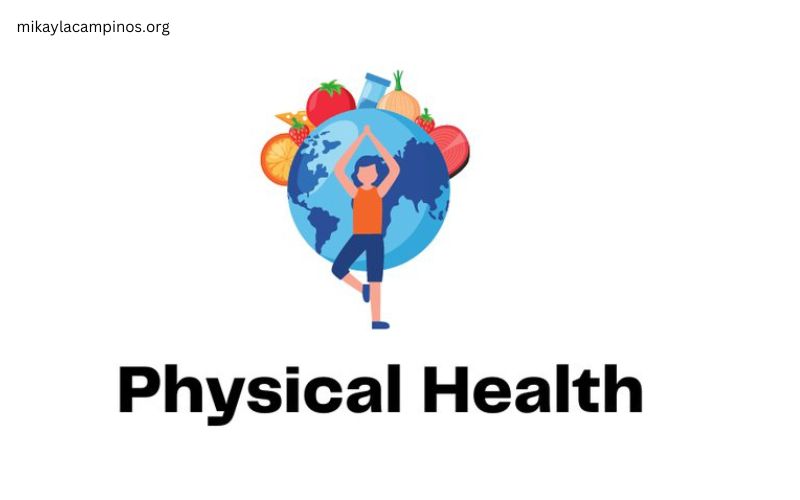In today’s fast-paced world, it’s easy to lose sight of the importance of physical health. However, maintaining a healthy body is crucial for your overall well-being and quality of life. Physical health encompasses a wide range of factors, from your energy levels and stamina to your ability to perform daily tasks without difficulty. Understanding the various components of physical health and how to maintain it can help you take charge of your health and live a more fulfilling life.
Understanding the Importance of Physical Health
Physical health is not just about looking good; it’s about feeling good and being able to function at your best. When you’re physically healthy, you have the energy and strength to tackle your daily responsibilities, participate in activities you enjoy, and maintain a positive outlook on life. Neglecting your physical health can lead to a range of issues, from chronic illnesses to reduced mobility and decreased quality of life.
Components of Physical Health
Physical health is multifaceted and encompasses several key components:
- Cardiovascular Health: This refers to the health of your heart and blood vessels, which play a crucial role in delivering oxygen and nutrients to your body’s tissues.
- Muscular Strength and Endurance: The ability to lift, carry, and perform physical tasks without undue fatigue is an important aspect of physical health.
- Flexibility and Mobility: Maintaining a good range of motion in your joints and muscles can help prevent injuries and improve your overall physical function.
- Body Composition: This includes factors like your body weight, body fat percentage, and muscle-to-fat ratio, all of which can impact your overall health and well-being.
- Nutrition and Hydration: Proper nutrition and adequate hydration are essential for maintaining physical health and supporting the body’s various systems.
- Sleep and Rest: Getting enough quality sleep and allowing your body to rest and recover is crucial for physical health and overall well-being.
Common Physical Health Issues
While physical health is essential, many people struggle with a variety of health problems that can impact their daily lives. Some of the most common physical health issues include:
- Obesity and overweight
- Cardiovascular diseases (e.g., heart disease, high blood pressure, stroke)
- Musculoskeletal disorders (e.g., back pain, joint pain, arthritis)
- Respiratory conditions (e.g., asthma, chronic obstructive pulmonary disease)
- Diabetes and other metabolic disorders
- Chronic fatigue and low energy levels
Addressing these issues through lifestyle changes, medical treatment, and preventive care can help you maintain optimal physical health and reduce the risk of more serious complications.
Tips for Maintaining Physical Health
Maintaining physical health requires a holistic approach that encompasses various aspects of your lifestyle. Here are some tips to help you stay physically healthy:
- Engage in Regular Exercise: Aim for at least 150 minutes of moderate-intensity aerobic activity or 75 minutes of vigorous-intensity aerobic activity per week, along with strength training exercises a few times a week.
- Eat a Balanced and Nutritious Diet: Focus on consuming a variety of whole, nutrient-dense foods like fruits, vegetables, whole grains, lean proteins, and healthy fats.
- Stay Hydrated: Drink plenty of water throughout the day to support your body’s various functions.
- Get Enough Quality Sleep: Aim for 7-9 hours of sleep each night to allow your body to rest and recover.
- Manage Stress: Practice stress-reduction techniques like meditation, deep breathing, or yoga to help your body cope with the demands of daily life.
- Schedule Regular Check-ups: Maintain a regular schedule of preventive care, including annual physical exams, cancer screenings, and other recommended health screenings.
- Avoid Harmful Habits: Quit smoking, limit alcohol consumption, and avoid other behaviors that can negatively impact your physical health.
The Link Between Physical and Mental Health
Physical health and mental health are closely intertwined. When you’re physically healthy, it can have a positive impact on your mental well-being, and vice versa. Regular exercise, for example, has been shown to improve mood, reduce stress and anxiety, and boost cognitive function. Conversely, poor mental health can lead to physical health issues, such as increased inflammation, weakened immune function, and even chronic pain.
Benefits of Regular Exercise for Physical Health
Regular physical activity is one of the most important factors in maintaining good physical health. Some of the key benefits of exercise include:
- Improved cardiovascular health and reduced risk of heart disease
- Increased muscular strength and endurance
- Enhanced flexibility and mobility
- Better weight management and body composition
- Reduced risk of chronic diseases like diabetes and certain types of cancer
- Improved sleep quality and increased energy levels
Healthy Eating Habits for Physical Well-being
In addition to regular exercise, maintaining a balanced and nutritious diet is essential for physical health. Eating a variety of whole, nutrient-dense foods can provide your body with the essential vitamins, minerals, and macronutrients it needs to function optimally. Some key elements of a healthy eating plan include:
- Consuming plenty of fruits and vegetables
- Choosing whole grains over refined carbohydrates
- Incorporating lean proteins like fish, poultry, and legumes
- Incorporating healthy fats from sources like avocados, nuts, and olive oil
- Limiting processed foods, added sugars, and unhealthy fats
Importance of Regular Check-ups and Preventive Care
Regular check-ups and preventive care are crucial for maintaining physical health and catching any potential health issues early on. This includes:
- Annual physical exams with your primary care provider
- Cancer screenings (e.g., mammograms, colonoscopies, prostate exams)
- Routine blood work and other diagnostic tests
- Immunizations and vaccinations
- Dental cleanings and oral health check-ups
By staying on top of your preventive care, you can identify and address any health concerns before they become more serious, ultimately improving your overall physical well-being.
Conclusion
Physical health is a critical component of overall well-being, and it’s important to prioritize it in your daily life. By understanding the various aspects of physical health, addressing common health issues, and adopting a holistic approach to self-care, you can take charge of your physical well-being and enjoy a higher quality of life. Remember, small, consistent steps towards better physical health can have a profound impact on your long-term health and happiness.
Take the first step towards better physical health by scheduling a check-up with your primary care provider today. They can help you develop a personalized plan to address any health concerns and provide guidance on maintaining optimal physical well-being.




I cling on to listening to the news update lecture about receiving boundless online grant applications so I have been looking around for the most excellent site to get one. Could you tell me please, where could i get some?